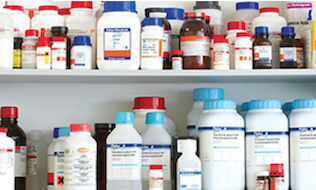
Some 731,000 Canadians borrow money to pay for drugs prescribed by their doctors, according to new research by the University of British Columbia.
The research, which used data from a 2016 Statistics Canada survey, found 2.5 per cent of respondents said they have to borrow money for prescriptions. Canadians between the ages of 19 and 34 were 3.5-times more likely to do so, compared to those between the ages of 45 and 54. As well, this group had lower household income, chronic medical conditions and lacked prescription drug insurance.
Read: Health costs to rise 11.8% in 2018, survey predicts
“We knew that many Canadians cannot afford their prescription drugs. These new findings suggest that many people are going into debt to cover the costs of their prescription medications every year,” said Ashra Kolhatkar, the study’s lead author and research coordinator at UBC’s Centre for Health Service and Policy Research, in a press release.
Among those who reported borrowing to pay for prescriptions, 33 per cent said they borrowed to pay for medications costing $200 or less, while 26 per cent borrowed for drugs costing between $201 and $500.
Read: Canadians divided on benefits of a universal drug program: report
“A key finding in our study was that borrowing occurred for all levels of out of pocket costs, and over 60 per cent of borrowing reported by the respondents in the study was for prescriptions that cost $500 or less,” said Kolhatkar.
Michael Law, senior author of the study and associate professor at UBC’s School of Population and Public Health, said policy interventions should be considered for people struggling to pay for prescription medications.
“Some provinces like Ontario and B.C. have implemented new public coverage programs to assist younger and lower-income Canadians who don’t have private drug insurance,” said Law. “Moving forward, we will need to investigate the impacts of these policies and continue to assess where people are falling through the cracks.”
